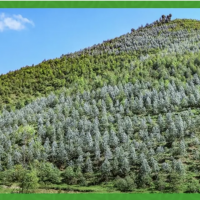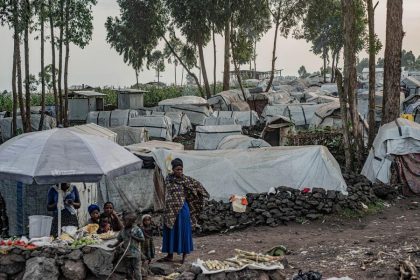Johannesburg, 2 October 2019
The successful but vulnerable South African hunting community worries that Western animal rights groups may force the end of hunting in Southern Africa.
Among the Western animal rights groups threatening the hunting industry is a German animal rights organisation that came to South Africa’s Limpopo Province to visit the Makuya Nature Reserve hunting community.
The group wanted all elephant hunting stopped. Makuya leaders said that Maria Worfel of Southern Cross Experiences and CEO of the African Tourism Board lodged this demand.
Elsewhere, the Worldwide Fund For Nature (WWF), an organization dedicated to stopping any use of wildlife for any purpose, wanted to establish an office in the Makuya Nature Reserve without specifying the office’s precise function. Nevertheless, the Makuya leaders have rejected the WWF’s request to set up an office in the Nature Reserve. At the August 2019 CITES COP18 meeting in Geneva Switzerland, the WWF revealed its new anti-wildlife-use position when it indicated that it was going to start shutting down lucrative ivory markets in Asian countries.
Three traditional councils work together as the co-owners of the Makuya Nature Reserve hunting community and receive benefits proportional to the amount of land each owns in the Reserve. Makuya Nature Reserve is increasingly emerging as one of South Africa’s most successful hunting communities, earning a gross annual income of more than R2 million (US$150,000.00) annually. The funds are benefiting conservation and community development in the area.
Sadly, local residents and their leaders are afraid that their hunting industry-driven benefits might end if South Africa’s leaders do not resist the pressure to end hunting there. They also hope that some well-to-do expatriate (foreign-based) South Africans will become involved in the effort to save their hunting business from overbearing Western animal rights groups and explain its manifest socioeconomic and conservation benefits to the world.
Accordingly, the disadvantaged and nearly voiceless Makuya residents and their leaders are making an urgent appeal to all the foreign-based South Africans to help them communicate the message that hunting “is a win-win business that benefits both the people and wildlife, including environmental conservation in general.”
“The threat from the Western animal rightists groups is considered real in the Makuya hunting community because non-consumptive tourism would bring far less income, compared to the amounts that we are currently earning from hunting,” said Mr Muthivhelo Mackson of Mutele Traditional Council. “Should anyone stop us from hunting, our good community plans such as buying another vehicle to do community work, drilling boreholes to make water readily available for our dying livestock and our people will just be aborted. “Currently they [local residents] are receiving good benefits from hunting and have used the money to build impressive village halls, a game skinning facility, and to fund chicken layers projects. The value of these investments are at around R500,000.00 (US$35 714.00).”
Mr Mackson added that the Makuya residents “intending to start employment-creating projects” such as potato and piggery farming.
Meanwhile, the Treasurer of the Makuya Nature Reserve Hunting Co Management Committee, Mr Hector Makuya, said that if the hunting business were to collapse, the community would also suffer from the stoppage of the training programme for 24 rangers who are going to be involved in community wildlife conservation.
“The stoppage of the training programme for 24 rangers would mean that 24 families would go without food and would be unable to pay school fees for their children,” added Mr Makuya. “Community members earning money from the hunting business together with their families will relapse into poverty, leading to social ills such as school drop-outs, drug addiction and prostitution as a means to survive.”
He said that “all the well-structured community projects that hunting revenues support” for a better future for Makuya will come to an end. “What a waste!”
“Most unfortunately, without benefits from wildlife, massive poaching is feared to break out not only in Makuya but also in Kruger National Park,” said Mr Ailwei Nemadzhilili of Mphaphuli Traditional Council “But all this can be avoided if Limpopo Provincial Government’s Department of Economic Development, Environment and Tourism issues Makuya with a long period hunting season. Sadly, this has forced us to fight this case in court and we appeal to the foreign-based South Africans to help us with financial donations or crowd funding to pursue the case and bring justice to both our wildlife and people whose future wellbeing is being compromised by the non-issuing of the long period [April 2019 to 31 March 2020] hunting licence. ”
Leaders of the Makuya Nature Reserve hunting community said that they hoped that two South African billionaires, whom the Los Angeles Business Journal recently reported to be the two richest men in Los Angeles, might come to their rescue. One of them is Elon Musk (the head of Tesla motor car company and Space X). The other billionaire is South Africa-born and Witwatersrand University-educated Patrick Soon-Shiung. He is not only owner of the Los Angeles Times [one of America’s most influential newspapers], but a world-renowned surgeon and inventor. He developed the cancer drug Abraxane that became noted for its efficacy for lung, breast and pancreatic cancers.
Worldwide we read stories of well-to-do foreign-based nationals who continue to help the poor back home. Ms Cara Dubyk Meskar, a freelance research specialist in the United States, identified expatriates who have stood up for and helped disadvantage communities in their home countries.
Hollywood actress and South Africa born Charlize Theron founded the Charlize Theron Africa Outreach Program in 2007 to fight HIV/AIDS in Saharan Africa.
“Dikembe Mutombo, the former NBA star from the Democratic Republic of Congo, founded the Dikembe Mutombo Foundation in 1997 to improve living conditions in his birth country and his work there has earned him multiple humanitarian awards,” said Ms Meskar. “In 2007 the Mutombo Foundation opened a 170-bed hospital in the DRC that has treated over 500,000 patients.”
Elsewhere, Oscar de la Renta, the famous designer from the Dominican Republic, opened the Casa del Niño Orphanage in the city of La Romana.
It remains to be seen whether the two South African billionaires [Elon Musk and Patrick Soon-Shiung] together with other unknown and unnamed but well-to-do foreign-based South Africans [who include prominent doctors, businessmen, academics and individuals] will take the challenge to save the Makuya Community from collapse by encouraging the continuation of hunting.
Makuya residents are anxious to know why LEDET gave them a directive to prematurely stop the hunting season at the end of September 2019 and not end it in March 2020 as originally agreed. The Makuya residents and leaders are wondering why in contrast, white hunting companies in the same area are allegedly being allowed to hunt up to the end of March 2020. Additionally, local residents and leaders alleged that last week LEDET lawyers “lied” to them that they were going to issue them with a longer hunting licence, only to be issued with an undesirable one that prematurely ended their hunting season at the end of September 2019.
“Our Limpopo Provincial Government lied to us [Makuya Nature Reserve Hunting Community] that they were going to issue us with a longer hunting licence, said Mr Ailwei Nemadzhilili of the Mphaphuli Traditional Council. “The lack of a longer hunting lease is going to threaten our hunting business with collapse as it would prohibit our entire American and European based hunting clients who are booked from April 2019 to 31 March 2020. By failing to issue a longer period hunting licence, LEDET is ‘killing’ Makuya Nature Reserve’s hunting reputation and withdrawing all our community benefits.”
Faced with this alleged LEDET refusal to issue them a license for a longer hunting period, Makuya has hired a lawyer as the last and promising option to break the deadlock. Sadly, Makuya doesn’t have the money to pay the lawyer’s full legal costs and if the court case drags on it could bankrupt their hunting business. Therefore they are appealing to South African expatriates to donate R2 million (US$142 857.00) for to pay legal fees for now. However, if the case drags on the Makuya community will require a donation of R7 million (US$500 000.00). The money can be donated into the Makuya Development Trust First National Bank account number.
Meanwhile, the lawyer they engaged has agreed to represent Makuya with the hope to receive payment from well-wishers and future hunting revenue that can only come if LEDET, loses the court case and is instructed to issue Makuya with a longer period hunting licence.
“We, as communities without enough legal financial muscles, have decided to take on our own Limpopo Provincial Government to court,” said Chief Thovhele Makuya. “We have agreed with our lawyer that we will not be able to pay his full legal costs. “We therefore request the foreign based well-to-do South Africans to contribute whatever money they can afford towards our legal battle against LEDET.”
Local and international observers are following the LEDET matter with keen interest, as this is in sharp contrast with the national South African Government’s very supportive attitude to Makuya. Certainly, the Makuya’s successful hunting business model is something that South Africa’s Department of Environmental Affairs (DEA) needs to support. Accordingly, DEA recently donated a R15 million (US$1 071 428, 00) to support Makuya Nature Reserve’s environmental work, including anti-poaching operations.
Unlike the national government of South Africa that has shown support to Makuya, LEDET’s lack of support towards Makuya is raising a lot of questions from local and international observers.
“This is a very unique situation because we thought that we had buried apartheid in 1994, but under the leadership of our so-called democratic government, we are being racially discriminated whereby hunting sustainable opportunities are continued to be enjoyed by white people protected by our own government, “said Ms Thifuneki Singode from Dotha [one of the villages] that owns land in the Makuya Nature Reserve. “We may conclude that our Provincial Government is too jealousy to see successful hunting business benefiting our communities, and want destroy it through forcing non-consumptive tourism. Currently all the monies which are paid by tourists to Makuya lodges do not benefit community. We are even demanded by our own Government pay these lodges for hunting clients even though we are still responsible for electricity and water.”
The Makuya residents and leaders have made a rare and passionate appeal to their fellow South African expatriates to save their hunting culture. They are hopeful that they could soon get help from generous South Africans out there. Only time will tell when and how the South African well wishers will respond or take up the challenge.
About the writer: Emmanuel Koro is a Johannesburg-based international award-winning environmental journalist who has written extensively on environment and development issues in Africa.
Emmanuel Koro
The Express News










